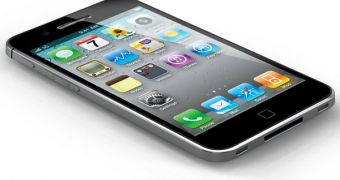Due to poor yield rates of in-cell touch panels for the next-generation iPhone, combined shipments are estimated at only 4-5 million units in July, “far below Apple's target of 20-25 million for all of the third quarter,” according to rumors cited by a Taiwanese trade publication.
Apple is reportedly encouraging panel suppliers to increase their yield rates at any cost, “and is even providing support including subsidies to help lower their production costs,” according to an analysis by DigiTimes Research, published by the namesake site in Taiwan.
Some industry sources, whose names are not divulged in the report, said that such low yield rates of in-cell touch panels could well force Apple into approaching TPK, a major panel supplier for the previous iPhone generations.
However, according to one analyst, that’s impossible right now.
Digitimes Research analyst Luke Lin commented on these rumors indicating that he was aware of the speculation about yield issues at in-cell touch panel vendors.
According to Lin, the situation “could lead to a shortfall in the supply of Apple's next-generation iPhone during the fourth quarter of 2012,” reads the report.
Lin reportedly said that “Apple is unlikely to go back to TPK's full-lamination process for its next iPhone design, because it would take at least more than a quarter for it to go through various stages of verification.”
If Apple is, indeed planning to release its next iPhone this fall, the device should now be in the PVT (production verification testing) stage, Lin said.
“Unless Apple initially developed two sample designs for its 2012 iPhone and had both go through the EVT (engineering verification testing) and later testing stages, the vendor would not be able to roll out the device using TPK's touch panels this year,” Lin reportedly added.
Some speculators have gone as far as to say that the iPhone 5, as the media refers to it, might actually be delayed by Apple, until the proper yield rates are met.

 14 DAY TRIAL //
14 DAY TRIAL //